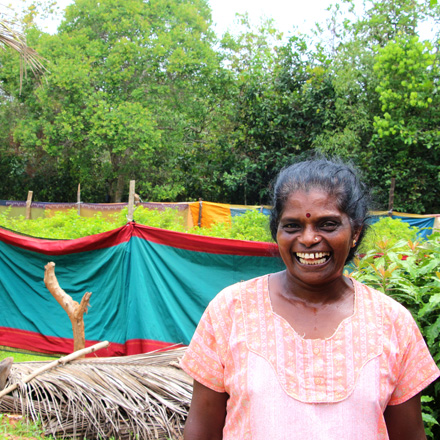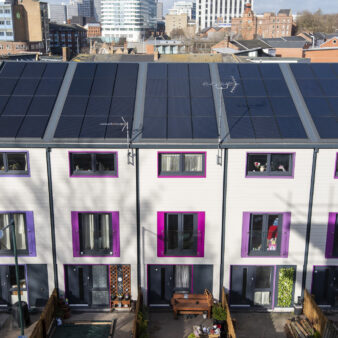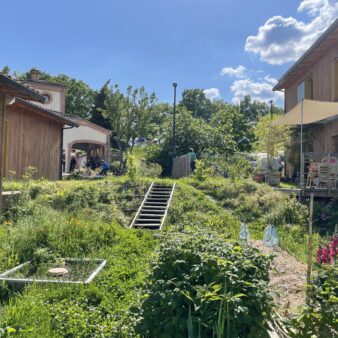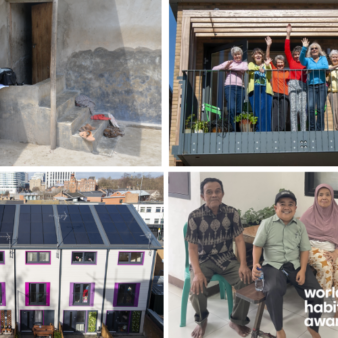
“Before land was allotted to us, I used to work as a labourer in the houses of upper caste people. We were treated as untouchables. We were doing long hours of work; it was a painful struggle of life.”
Gowri tells me this as I sit on the front porch of her spacious home where she lives with her husband and four sons, surrounded by stunning vegetation, in Karnataka, south-west India.
She tells me about the small hut they used to live in, on the edge of the village. As part of the Koraga tribe, they were considered the lowest of the caste-based system, forced to endure horrendous practices such as Ajalu – where hair and fingernails were added to leftover foods which the Koraga people were expected to eat.
Thankfully this wasn’t the end of Gowri’s story. In the late 1980s an organisation called the Samagra Grameena Ashram (SGA) started working with this tribe, to instil their sense of dignity and self-worth, and to help them advocate for their rights. In 2000 the SGA formed a partnership with ActionAid India and through this partnership the Koraga Federation was established.
Made up of representatives from the Koraga tribe, they have – through incredible persistence and determination – successfully advocated for land and housing.
Gowri was part of this advocacy programme and claimed her right to homestead land. Now her family have a decent house and own jasmine, areca nut and coconut trees grown on their land.
The Koraga Federation represents the Koraga tribe at every level – from village to state.
Over 2,500 families have been given land and approximately 10,000 Koragas and 9,000 people from forest-dwelling communities have accessed state-sponsored housing. They have also successfully advocated for improved access to education and nutrition.
Most importantly, the vast majority of Koragas now refuse to take part in degrading and oppressive practices such as Ajalu. They view themselves completely differently. This work goes to the very core of how they see themselves. It really is ‘whole life transformation’ for entire communities and the impact of this will continue for generations to come.
The initiative has been so successful that the Koraga Federation no longer requires the support of ActionAid India and the SGA. They have taken their learning from this 20-year struggle to now work with communities in – or recently freed from – bonded labour.
Gowri best summarises the impact this programme has had: “With pride, I wish to say that land is a breakthrough in my life to come out of the oppression. Now I am self-reliant!”




Join the discussion